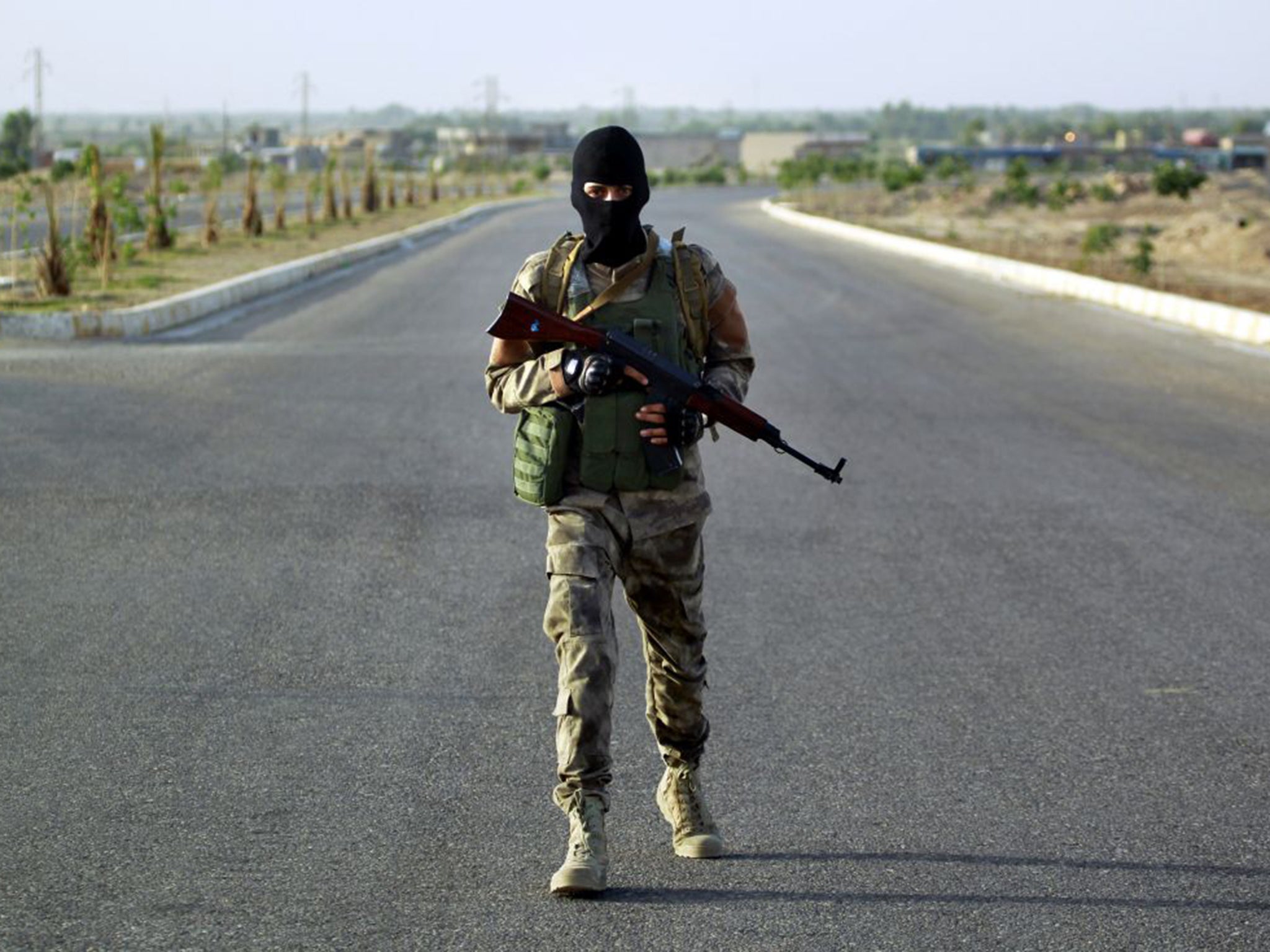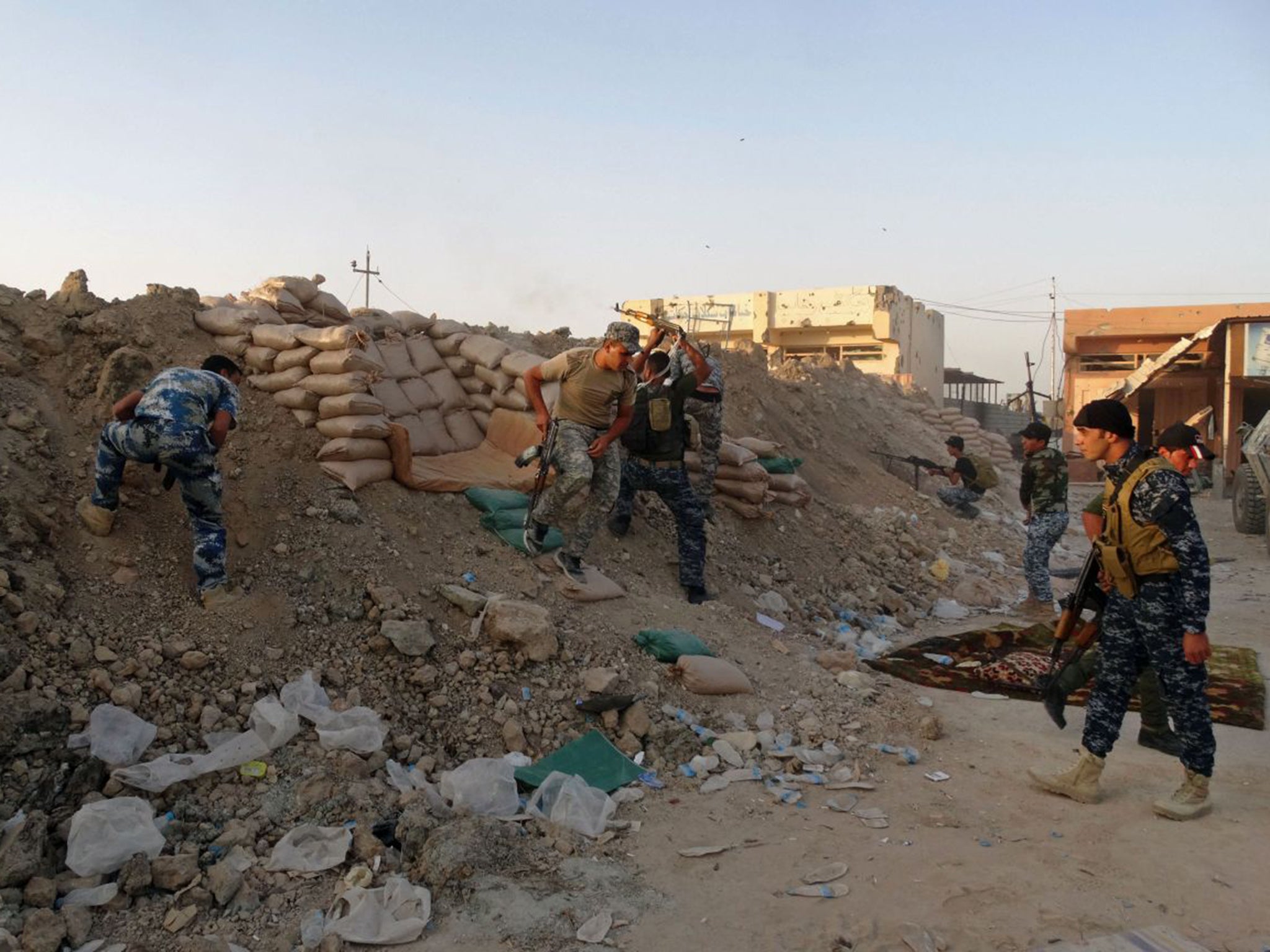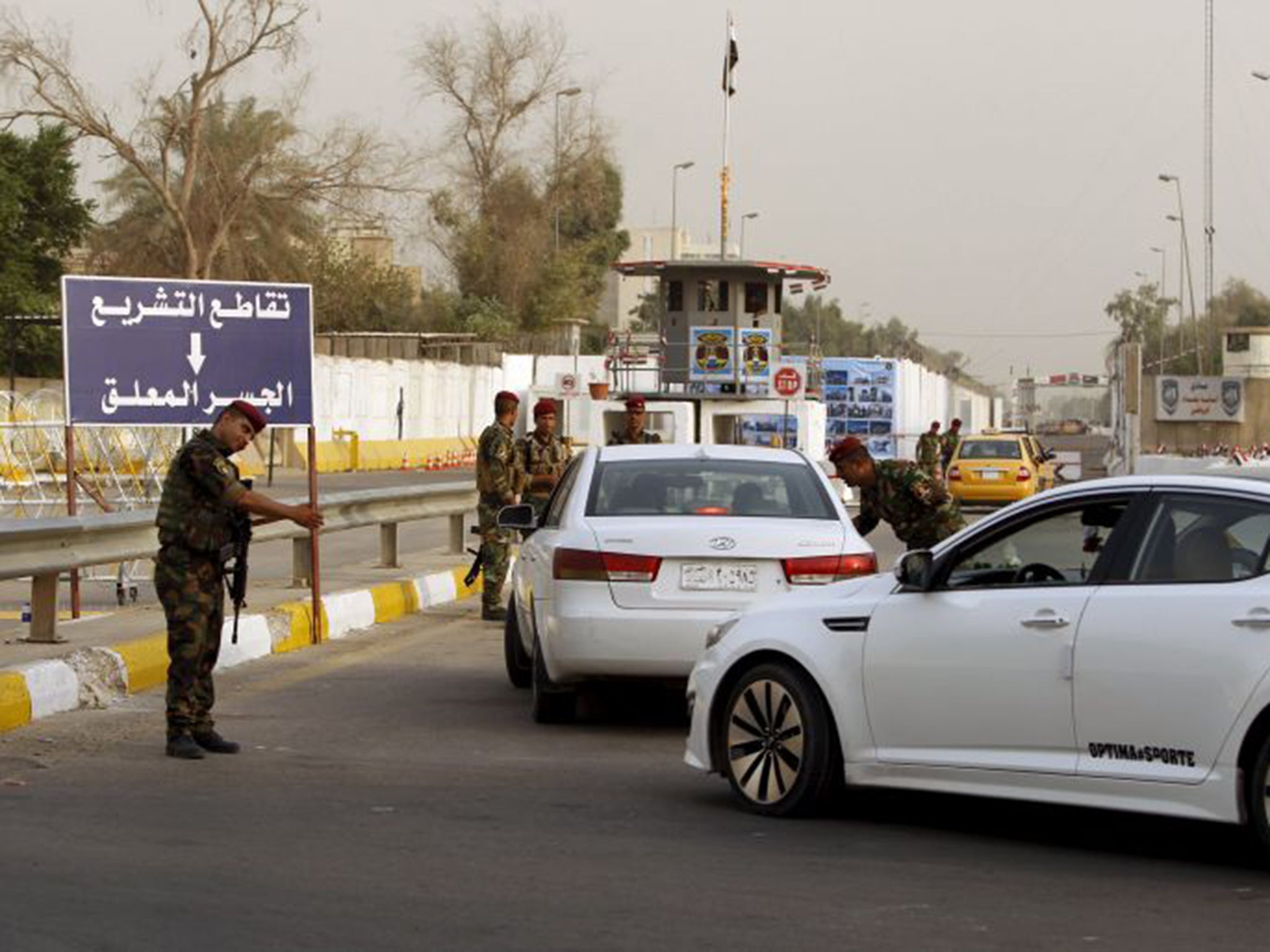War on Isis: Iraq seeks Sunni militia support for fight against Islamic State
Since the fall of Saddam Hussein’s regime, Sunni politicians have been sidelined at best, imprisoned at worst. Now the Iraqi government is in secret talks with Baathists and Sunni militiamen in a bid to join forces

Your support helps us to tell the story
From reproductive rights to climate change to Big Tech, The Independent is on the ground when the story is developing. Whether it's investigating the financials of Elon Musk's pro-Trump PAC or producing our latest documentary, 'The A Word', which shines a light on the American women fighting for reproductive rights, we know how important it is to parse out the facts from the messaging.
At such a critical moment in US history, we need reporters on the ground. Your donation allows us to keep sending journalists to speak to both sides of the story.
The Independent is trusted by Americans across the entire political spectrum. And unlike many other quality news outlets, we choose not to lock Americans out of our reporting and analysis with paywalls. We believe quality journalism should be available to everyone, paid for by those who can afford it.
Your support makes all the difference.The Iraqi government has embarked on secret talks with Sunni militia figures and former members of Saddam Hussein’s Baathist regime in an attempt to secure crucial Sunni support in the fight against Isis.
After a first meeting in the Qatari capital Doha early last month, a second round of talks took place in Tanzania two weeks later, and three more sessions are planned, according to well-informed Iraqi sources who were party to the talks but requested anonymity because of their sensitive nature. The Independent has seen photographs of the meeting in Tanzania, which showed representatives from Western and African governments alongside officials of Iraq’s Shia-led government. The US and the UN are mediating the talks.
Insiders say there has been significant progress, with representatives from Saddam’s former Baathist regime conceding for the first time that the Kurdistan region could have full autonomy within a future Iraq – a previous stumbling block as Sunni groups had insisted that Iraq must remain a fully unitary state.
The cooperation of Iraq’s Sunnis is seen as vital in the fight against Isis, which is itself a Sunni sectarian group. Disenfranchisement and alienation of Iraq’s Sunni minority since the fall of Saddam – particularly under the administration of former prime minister Nouri al-Maliki – has been blamed in part for the rise of the extremist group.
Among the nine Sunni factions present at the talks are insurgent groups which aided Isis in its takeover of Mosul and vast swathes of Iraq last year. But the difficulties likely to be faced by any Sunni push against Isis were underlined today, as 70 members of a Sunni tribe who were opposed to the jihadists were reportedly slaughtered by the group, according to a tribal elder. The tribesmen, killed because their relatives served in the Iraqi army, were members of the Al Bu Nimr tribe, which aided the US military in its operations to counter al-Qaeda in Iraq during the so-called Sunni Awakening of 2006 and 2007.

The talks include representatives from the Islamic Army in Iraq and the Naqshbandi Brigade, both of which emerged in 2003 to fight US-led coalition forces in the aftermath of the invasion. The groups also fought the Iraqi army alongside Isis last year, before splitting from Isis over its extremist tactics.
Mr Maliki was accused of reinforcing sectarianism that erupted in the wake of the 2003 invasion by discriminating against officials with Baathist backgrounds, and deploying a divide-and-conquer strategy with largely Shia armed forces deployed heavily in Sunni areas, leaving many Sunnis feeling their only recourse was to violence.
Former Baathist officers from Saddam’s regime, who were pushed out of government during the US-led occupation and now operate as a so-called Military Council, were present at the talks, as well as a number of Sunni tribal leaders and politicians.
A second advance in talks came when all involved were encouraged to commit to the Iraqi constitution, adopted in 2005, which recognised Shias as the country’s biggest ethnic group but gave equal political weight to Shias, Sunnis and Kurds. After some discussion, all nine parties did so.
Details on how the fight against Isis will be organised are sparse, but Sunni representatives are demanding Shia militias not be involved in freeing Sunni areas like Mosul. Many Mosul residents feel betrayed by the mainly Shia Iraqi army after it fled last year in the face of Isis’s assault, and it is feared they may choose to support Isis rather than be freed by Shias.
It is hoped the meetings will lead to a role for Sunnis in the government. Their exclusion from the political process, as well as the imprisonment of Sunni politicians and civilians, led to protests and ultimately fuelled the rise of Isis.
The meetings followed an agreement between Sunni Iraqis and the US government, aimed at increasing the political rights of Iraq’s 20 million Sunnis. Three more sessions are planned in Doha, Saudi Arabia and in Paris.

The Baghdad government has been under pressure from the US to take part in such deliberations, in the hope of repairing fractures between the Shia-led government and the Sunni community, and ulimately uniting them in the fight to push Isis out of Iraq.
The Iraqi army’s attempts to retake the key cities of Baiji and Ramadi from Isis have stalled. The US’s own train-and-assist programme of the army has hit a series of hurdles, according to a Pentagon report last week, including a lack of equipment, miscommunication between US trainers and Iraqi commanders, and inadequate living quarters. The latest initiative has been given new urgency after Russia’s military intervention in support of Syrian president Bashar al-Assad, which some say is intended to push Isis out of Syria and into Iraq, making the fight against Isis in Iraq increasingly vital.
Will McCants, a fellow at the Brookings Institution think tank’s Centre for Middle East Policy, said the Sunni Arab tribes need to be incorporated into Iraq’s long-term political system as part of any plan to defeat Isis, and added: “Isis sees the Sunni Arab tribes as the centre of gravity and so should its enemies.”
Join our commenting forum
Join thought-provoking conversations, follow other Independent readers and see their replies
Comments